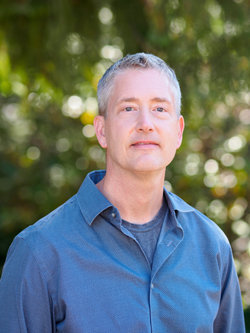Matthew Welch

Department Co-Chair, Francis Williams Chair in Biological Sciences,
Professor of Cell Biology, Development and Physiology*
*and
Research Interests
Our research program focuses on understanding how microbial pathogens target the machinery of their host cells during infection, with the overall goals of revealing crucial mechanisms of infectious disease and uncovering fundamental cellular mechanisms of general biological importance. The tiny microbes that cause disease often colonize their larger host cells through an ability to target important cellular structures and pathways. Thus, understanding how microbes interface with and inhabit host cells is crucial for uncovering disease mechanisms. Moreover, when microbes interact with host cells, they often elicit amplified cellular responses by mimicking or manipulating host molecules which themselves are poorly understood. We can therefore use microbes as powerful tools to shed light on important yet poorly understood molecular mechanisms of host cell regulation and function. The utility of our overall approach is supported by many examples of how studying interactions between microbes and host cells has enhanced our understanding of disease processes, and has simultaneously revealed fundamental features of key cellular processes, including cytoskeleton dynamics, membrane trafficking, cell cycle control, protein recycling, and cell death.
Current Projects
Interaction between pathogens and the host actin cytoskeleton. An amazing variety of bacterial and viral pathogens target the actin cytoskeleton of host cells during infection. To gain broad insight into the strategies used by pathogens to exploit actin, we study diverse bacterial pathogens including Rickettsia, Burkholderia, and Mycobacterium species, as well as the insect virus baculovirus. We working to understand how pathogen proteins target host cell signaling, cytoskeletal, membrane trafficking, and gene regulatory proteins to promote invasion, intracellular replication, motility, and cell-cell spread. By studying the interaction between diverse pathogens and actin, we hope to gain insights into critical mechanisms of pathogenesis as well as the normal functions of the cytoskeleton in uninfected cells.
Pathogen interaction with host membranes. Bacterial and viral pathogens also extensively interact with host membranes during invasion, intracellular growth, avoidance of innate immunity, and cell-cell spread. We study how Rickettsia degrades membranes to escape from the host cell phagosome into the cytoplasm, how it metabolizes membrane intermediates for growth and replication, and how it avoids targeted by host membranes in the autophagy pathway. We are also working to understand how Burkholderia interacts with the plasma membane of host cells to cause cell-cell fusion. By studying the interaction between pathogens and membranes, we hope to gain insights into pathogenesis and membrane dynamics.
Developing drugs that target the cytoskeleton of parasites. Parasites called trypanosomes cause neglected diseases that affect millions of the poorest people in the world. Because they rely on the cytoskeleton to complete essential processes, trypanosomes are vulnerable to attack by drugs that target cytoskeletal proteins. We are working to identify a new class of anti-trypanosomal agents that targeting kinesins and myosins, large superfamilies of molecular motor proteins that move cargo along cytoskeletal filaments. We are pursuing a multidisciplinary strategy that makes use of chemical biology, molecular biology and cell biology methods to analyze the basic processes that require motor function and to identify lead compounds to pursue in drug development efforts.
Selected Publications
photo credit: MarkJosephStudios.com
Last Updated 2024-09-10